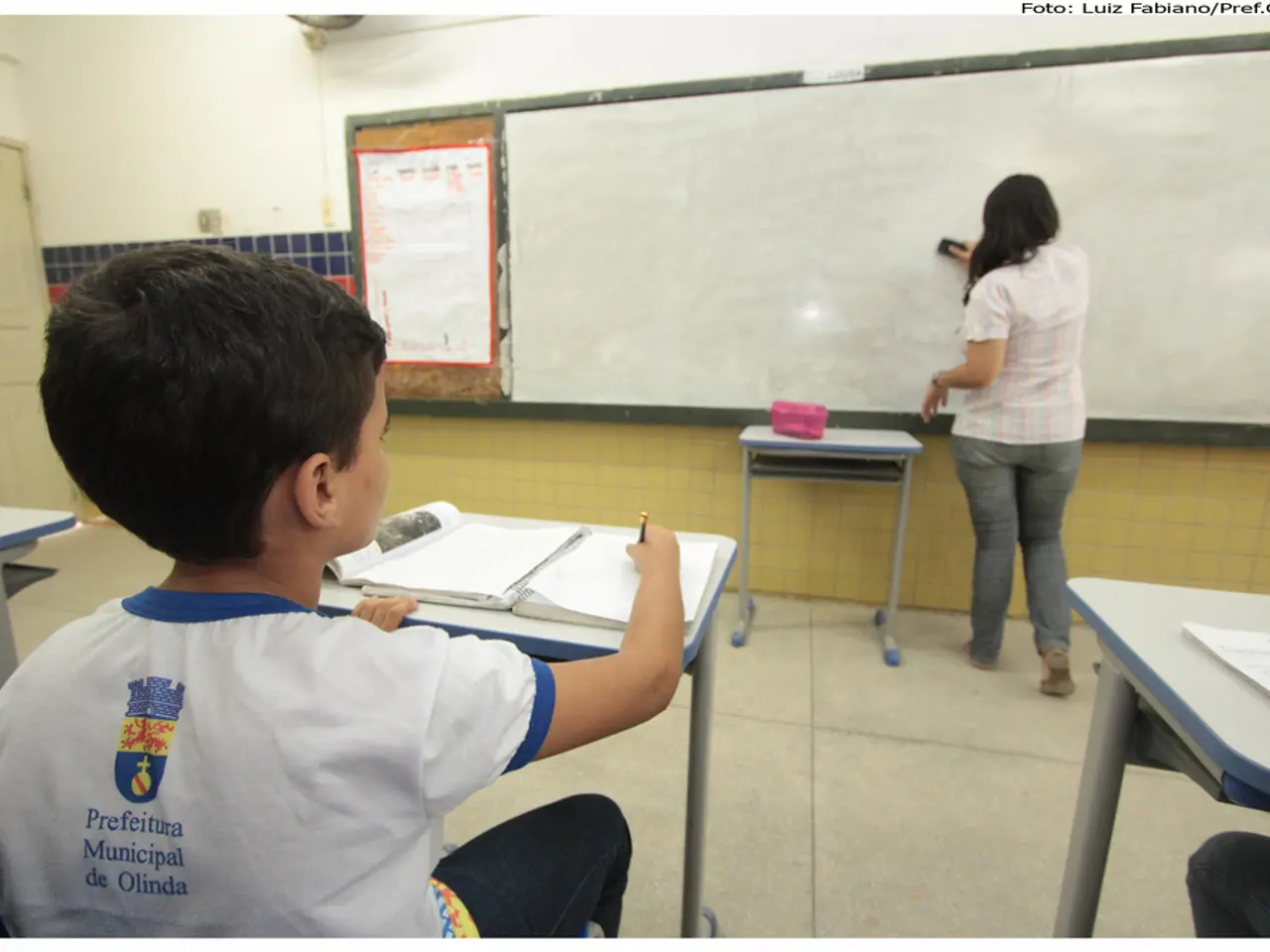Strategies for Boosting Your Child's Desire to Complete Assignments at Home
=====================================================================
Homework can be a source of stress for both children and parents. However, it's an essential part of a child's learning journey, helping them build organizational, problem-solving, and independent skills. Here are some strategies to help your child excel in their homework and create a positive routine.
1. Positive Reinforcement and Rewards
Small rewards and frequent praise can help sustain motivation without external pressure. This approach encourages children to take ownership of their learning and strive for success.
2. Breaking Homework into Bite-sized Chunks
Large assignments can seem overwhelming. By dividing them into smaller, manageable tasks, you help your child build momentum and reduce feelings of being overwhelmed.
3. Dedicated Study Environment
A quiet, well-lit, distraction-free space stocked with supplies can improve focus and habit formation. Creating such an environment signals to your child that homework is important and encourages them to become more independent.
4. Establishing a Routine
Predictable homework start times, timed working sprints, and scheduled breaks help children anticipate and manage their workload. A consistent routine helps children develop a positive attitude towards homework.
5. Using Visual Planners or Homework Charts
When children fill in and tick off tasks themselves, they develop ownership and planning skills. Visual planners and charts provide a clear structure for the day's tasks.
6. Parental Involvement without Taking Over
Be available to assist your child with their homework, but resist the urge to solve problems for them. Instead, guide them through the process, asking probing questions to stimulate their critical thinking. This approach fosters confidence and study autonomy.
7. Address Understanding Issues
If your child is procrastinating because they don't understand the subject, encourage them to express their concerns and don't hesitate to reach out to their teachers for clarification if needed.
8. Making Homework Fun
Homework doesn't have to be boring. Make it more exciting by counting out sweets, cars, or bricks for a simple maths addition, for example. This can make the learning process more enjoyable.
9. Collaborate with Teachers
If your child is having recurring problems with a particular subject or task, consider speaking to the class teacher and developing a plan together.
10. Tailor Your Approach
Remember that every child is unique, so be flexible and tailor your approach to suit their individual needs.
11. Avoid Distractions During Homework Time
Avoid watching TV during homework time, as it can easily distract children, especially when they're young.
By integrating these approaches consistently and collaboratively, parents build positive homework habits that encourage independence, reduce conflict, and promote academic success.
If you're interested in learning more about our school's approach to education and how we support students both academically and personally, why not book an open day?
1. Balancing Science and Health-and-Wellness Promote the importance of balancing time spent on science homework and personal health-and-wellness activities, such as exercise, adequate sleep, and a nutritious diet, to ensure your child's holistic development.
2. Encouraging Family Health and Parenting Skills Discuss health-related topics as a family, such as the role of hand-washing in preventing illness, and promote open communication about issues related to their own health and well-being.
3. Pursuing Education, Self-Development, and Well-Roundedness Encourage your child to participate in extracurricular activities, such as clubs and workshops, that focus on education and self-development, like cooking, gardening, writing, or coding, to help them discover their interests and foster well-roundedness.




